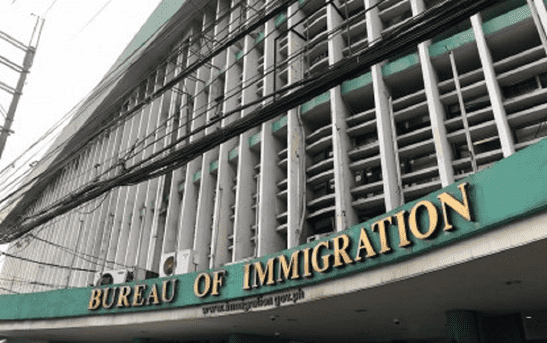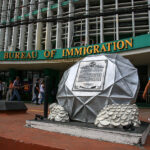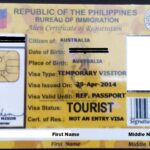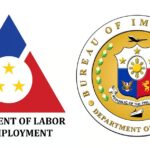The Philippines is positioning itself as a hub for remote workers by proposing a digital nomad visa allowing foreign professionals to live and work in the country while being employed by companies abroad. With its breathtaking beaches, vibrant cities, and affordable cost of living, the Philippines has long been a favored destination for digital nomads. However, existing visa options have not been explicitly tailored to this growing demographic.
As global work trends shift toward remote employment, the demand for digital nomad-friendly policies is rising. Countries such as Thailand, Indonesia, and Malaysia have already implemented digital nomad visa programs, and the Philippines aims to follow suit. According to Fintech News Philippines, introducing this visa would position the Philippines as an attractive destination for highly skilled professionals seeking to work remotely in a tropical environment. This article explores everything you need to know about the digital nomad visa in the Philippines, including requirements, the application process, benefits, tax considerations, and the best cities for digital nomads to live in. We also discuss why navigating the application process can be overwhelming and how WorkVisaPhilippines.com can simplify it.
Understanding the Digital Nomad Visa Philippines
The digital nomad visa is a special permit designed for remote workers who wish to live in the Philippines while maintaining employment with a foreign company. Unlike tourist visas, which require frequent renewals and limit stay duration, a Philippines digital nomad visa would provide a longer-term solution for professionals working remotely. If enacted, this visa would offer:
- Legally recognized stay for remote workers without the need for frequent renewals.
- Extended visa validity, likely between 6 months to 2 years, depending on government regulations.
- Freedom to work remotely for a company outside the Philippines without violating local labor laws.
- Potential tax benefits compared to traditional work visas.
However, the program is still in development. Policymakers weigh factors such as taxation, eligibility requirements, and the economic impact of welcoming a larger digital nomad community. While many details are still being finalized, digital nomads can expect an official framework to be established soon.
Digital Nomad Visa Philippines Requirements
Understanding the digital nomad visa Philippines requirements is crucial for those considering applying. While the exact criteria are not yet finalized, the proposed requirements may include:
- Proof of Remote Employment: Applicants must demonstrate that they are employed by a foreign company or operate their remote business.
- Minimum Income Requirement: Many countries impose income thresholds to ensure digital nomads can sustain themselves. The Philippines may require proof of a minimum monthly income, possibly around $2,000–$3,000 USD.
- Valid Passport: A passport with at least six months of validity beyond the intended stay.
- Health Insurance: A policy that covers medical expenses while in the Philippines.
- Background Check: Clearance from law enforcement agencies proving the applicant has no criminal record.
- Proof of Accommodation: Rental agreements or hotel bookings showing the applicant has secured a place to stay.
- Bank Statements: Documents proving financial stability.
Given these requirements, a complete and well-prepared application package will be necessary for a smooth approval process. Any missing documents could lead to delays or outright rejection.
How to Apply for a Digital Nomad Visa in the Philippines
The Philippines digital nomad visa application process will involve multiple steps, including securing approvals from various government agencies. Based on similar programs in other countries, applicants may need to:
- Step 1: Pre-Application Preparation
- Gather all required documents, including proof of income, remote employment, health insurance, and a valid passport.
- Ensure your background check and health certificate are up to date.
- Step 2: Submit the Application
- Applications may be submitted online via an official government portal or at a Philippine consulate.
- Pay the necessary processing fees.
- Step 3: Wait for Approval
- Depending on demand and government review processes, processing times may vary from 4 to 12 weeks.
- Additional interviews or verification steps may be required.
- Step 4: Enter the Philippines and Register
- Once approved, digital nomads must enter the country and complete local registration processes, including securing an Alien Certificate of Registration Identity Card (ACR I-Card).
The process can quickly become overwhelming due to multiple stages and bureaucratic hurdles. Ensuring accuracy in documentation and compliance with evolving regulations is critical to securing approval.
Tax Implications for Digital Nomads in the Philippines
Tax obligations are one of the biggest concerns for digital nomads considering this visa. Understanding whether you will be liable for local taxes is essential before relocating.
- Non-Resident Taxation: Digital nomads earning income from foreign employers may not be subject to local income tax if they do not conduct business with Philippine clients.
- Duration-Based Tax Rules: If staying more than 183 days, you may be classified as a tax resident and must file taxes in the Philippines.
- Double Taxation Agreements: Australia, the U.S., and many European countries have treaties with the Philippines to prevent double taxation.
- Value-Added Tax (VAT) Considerations: Additional tax obligations may apply if a business is operated remotely.
Because tax laws are complex, it is strongly advised that you consult a professional before moving. Mistakes in tax compliance could lead to fines or legal complications.
Best Cities for Digital Nomads in the Philippines
The best cities for digital nomads in the Philippines offer a mix of affordability, high-speed internet, coworking spaces, and vibrant expat communities. Some of the top choices include:
- Manila: The country’s capital, offering top-tier coworking spaces, strong infrastructure, and nightlife.
- Cebu: is known for its mix of city life and beach escapes, excellent connectivity, and low living costs.
- Davao: A clean, well-regulated city with good internet and a low crime rate.
- Siargao: A tropical paradise for nomads who love surfing and laid-back island life.
- Baguio: A cooler climate with a growing remote worker scene.
Each location offers unique advantages depending on lifestyle preferences, work needs, and connectivity requirements.
Why Getting a Digital Nomad Visa is a Complex Process
While the Philippines digital nomad visa presents exciting opportunities, the application process is not simple. Government policies are still developing, meaning requirements may change frequently. The paperwork, documentation, and compliance with immigration laws can be daunting, especially for those unfamiliar with the Philippine legal system.
Is Assistance Available?
Yes! WorkVisaPhilippines.com specializes in guiding remote professionals through the Philippines digital nomad visa application process. Reach out today to schedule an initial consultation with one of our experts.
- Contact Us Here
- Fill Out the Form Below
- Call us at +63 (02) 8540-9623





